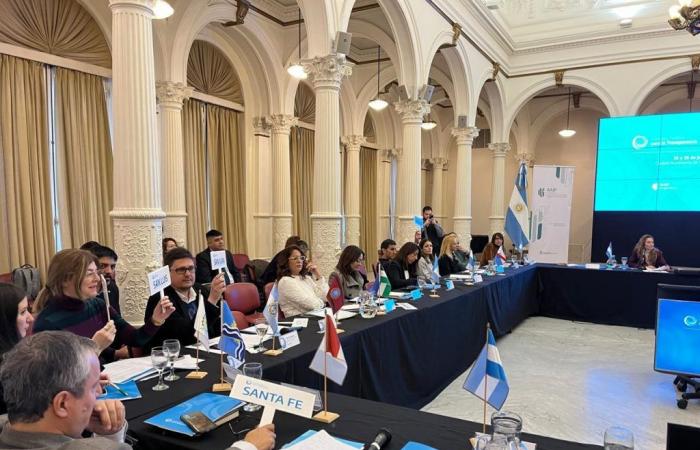Federal Transparency Council
The representative of the government of Santa Fe in the Federal Transparency Council, the Undersecretary of Fight Against Corruption, Transparency and Ethics of the Public Sector, Marcelo Trucco, He was elected by his peers from the Argentine provinces and the Autonomous City of Buenos Aires as vice president of the organization.
The application for the position expresses the commitment of Governor Maximiliano Pullaro to advance transparency policies, within the framework of the recent sanction in the provincial Legislature of bill No. 14256 on “Data governance and access to public information”, drafted by the Santa Fe Government.
The Federal Transparency Council is made up of a representative from each of the provinces and the Autonomous City of Buenos Aires, and the president is the head of the National Agency for Access to Public Information (AAIP).
It is important to note that the vice presidency is the highest position awarded through the vote of the members of the organization.
Law No. 14256
In terms of transparency, it is worth noting that last April, at the urging of Governor Pullaro, the Law on Data Governance and Access to Public Information was passed, its purpose being to “development, implementation, improvement or incorporation of new solutions, processes or approaches that improve the responses, action capacities and adaptation of the State to the dynamic and changing collective challenges, improving the quality and effectiveness of interventions, citizen participation and democratic quality”.
The standard also speaks of having a “Smart State, defined as one that continuously builds and increases its learning capacity from the collection, interpretation and analysis of large volumes of information that the Administration itself or other agencies or actors produce, both from technological and human sources, contributing to the analysis and understanding of public policy problems for the anticipatory and proactive generation of dynamic adaptation and response processes, promoting greater closeness and involvement of the State with society and its various actors.”
Among other points, the approved law regulates the technological update of the administration, incorporating emerging technologies such as Artificial Intelligence, robotics, data sciences, among others. Likewise, the standard speeds up the transfer of data between the different areas of government and improves the management of administration procedures to provide faster responses.
The advice
The Federal Transparency Council was created by article 29 of law 27,275 on Access to Public Information, ands the permanent interjurisdictional body whose purpose is technical cooperation and the coordination of policies regarding transparency, access to information and the protection of personal data, the latter also linked to advances regarding Artificial Intelligence.
In its statute it establishes that “The titular and alternate representatives to the Council must be the highest authorities in matters of transparency and access to public information in each of the jurisdictions, designated through the corresponding administrative act by the governor of the province or the Head of the Autonomous City of Buenos Aires, as appropriate.”
In support of the representatives before the Federal Council, the General Coordination of Anti-Corruption and Transparency of the Public Sector participates in the technical commissions of the Council: Transparency, Governance and Protection of Personal Data, and Training and Citizen Participation.


